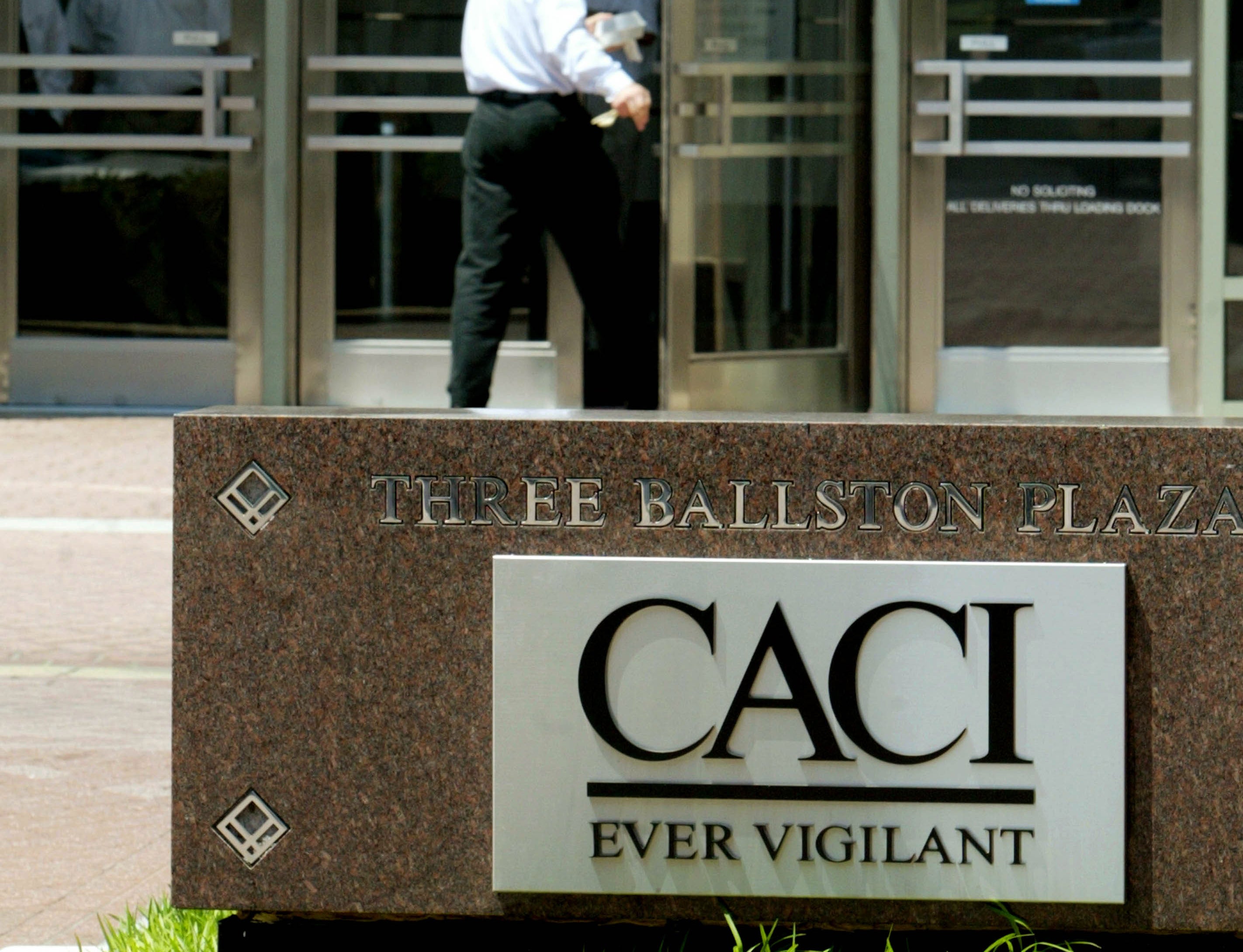
A federal contractor tasked with performing background checks on Department of Defense employees seeking high-level security clearances copped to submitting reams of bogus reports when she claimed to have thoroughly vetted candidates who, in fact, had not been properly checked out.
Of 39 allegedly fraudulent investigations Nousheen Qureshi carried out over the course of more than a year for the Defense Counterintelligence Security Agency, at least a half-dozen included fabricated “interviews” with people who later said they had never even heard from her at all, according to a plea agreement obtained first by The Independent.
“The results of the background investigations conducted by [Qureshi] were used to determine whether to grant security clearances to individuals at various levels, including and up to Top Secret/Sensitive Compartmented Information (‘TS/SCI’) access,” states the plea agreement, which was unsealed Tuesday in Santa Ana, California federal court. “To conduct the investigations, [Qureshi] herself had TS/SCI clearance.”
Qureshi, a Mission Viejo resident, worked at the time for CACI International, a $7.7 billion Virginia-based conglomerate that bills itself as being “ever vigilant in helping our customers meet their greatest challenges in national security.” Each of the 299 background investigations she turned in between July 2020 and August 2021 had to be re-worked by the agency, costing taxpayers nearly $250,000 extra, according to the plea agreement.
Qureshi was subsequently hired by two other companies to run background checks for the Department of Homeland Security, doing more than 600 of them until her past finally came to light and she was removed from all DHS projects, the plea agreement says.
She was charged by information on June 2, and the case has not been made public until now.
Tucker Atkins, Qureshi’s court-appointed lawyer, did not respond to a request for comment on Wednesday.

Since the September 11 terrorist attacks there has been a tremendous increase in the number of security clearances issued by the federal government, according to attorney Dan Meyer, a former U.S. Navy officer who is now a national security partner in the Washington, D.C. office of Tully Rinckey, PLLC. As the system has become more and more overloaded, investigators have seen their workloads double, triple, or even quadruple to as many as 40 cases a week, Meyer told The Independent.
Along with this, the incentive to cut corners has also increased, said Meyer.
“And once they start falsifying documents, there’s a greater incentive to falsify documents because you’ve got to hide it once you’ve done it,” he said.
Further, Meyer pointed out, the Trump administration has publicly undercut the gravity of rigorous security clearances, where he said sends a message out to the rank-and-file, “who start to think, ‘Hey, maybe this isn’t so important.’”
A sham background report such as those generated by Qureshi can lead to extremely serious counterintelligence issues, according to Seamus Hughes, a senior researcher at the National Counterterrorism Innovation, Technology, and Education Center, a partnership between the University of Nebraska at Omaha and DHS.
“Intelligence officials are trusted with some of the nation’s most important secrets. Fabricating background interviews and gaming the process has the potential to put those secrets at serious risk,” Hughes told The Independent. “There’s been an increasing number of criminal cases recently against government employees with high-level security clearances leaking classified information. A thorough security clearance review is paramount to preventing such disclosures.”

The Defense Counterintelligence and Security Agency is responsible for ensuring U.S. government job candidates, as well as those already on the payroll, can be trusted with, among other things, classified information. As “America’s gatekeeper,” the Defense Counterintelligence Security Agency conducts over two million background checks each year on people applying for both civilian and military roles, and reinvestigates current employees’ security clearances at regular intervals.
Qureshi began working at CACI in June 2018, and was assigned to the Defense Counterintelligence Security Agency security clearance investigations, according to her plea agreement.
“In that capacity, [Qureshi] conducted background investigations for the Department of Defense,” the plea agreement says. “The investigations included applicants for DoD employment, DoD employee background reinvestigations, and investigations for security clearances of defense contractors’ employees.”
Qureshi was responsible for interviewing friends, acquaintances, and associates of those under investigation, and writing reports on her findings, according to the plea filing. It says the clearances in question went all the way up to the TS/SCI level, which allows individuals with a demonstrated “need to know” to access highly classified materials.
To ensure security clearance investigations are being done properly, the agency’s Quality Management Oversight Group randomly selects reports to review and re-contacts the individuals interviewed with written questionnaires about the process, the plea explains.
In June 2021, amid a routine probe into one of Qureshi’s reports, the agency heard from “J.F.,” a person she had spoken to as part of background investigation into a Top Secret security clearance candidate identified in the plea filing as “M.C.”
“J.F.’s response to DCSA stated that he provided information to [Qureshi] about M.C.’s drug use,” the plea states. “[Qureshi’s] report of J.F.’s interview did not contain this derogatory information.”
It also says that Qureshi “willfully falsely reported that she had interviewed M.C.’s landlord, S.R., and that S.R. stated that M.C. had lived at a Lancaster, California residence alone.” However, the plea filing goes on, Qureshi “well knew” that she had not interviewed S.R., and S.R. “had not stated M.C. lived alone.”
“In a subsequent interview with S.R., DCIS Special Agents learned that M.C. lived at the Lancaster residence with four roommates and that two rooms at the residence were used as vacation rentals,” the plea continues, adding that Qureshi’s “false statements were material to the decisions” that followed by DCSA as to granting M.C. a security clearance.
The plea agreement, which does not specify if M.C.’s clearance was ultimately approved or not, says CACI then pulled a sample of Qureshi’s other background investigations, to recheck her work.

Of the cases CACI reviewed, it came to find out that “six individuals claimed they had not been interviewed” at all by Qureshi, who, the plea maintains, “submitted six separate reports stating that she had interviewed those individuals and provided factual narratives of their conversations.”
As a result, the plea says CACI fired Qureshi in August 2021. Once she was gone, the Defense Counterintelligence Security Agency “reworked the 299 background investigations” Qureshi had conducted over the prior year, for which she had spoken to 1,025 sources, according to the plea. In all, it says special agents discovered no fewer than 39 false reports, and pegs the cost of redoing them at $240,306.04.
Two months later, Qureshi hired on as an investigator at a pair of other federal contractors, Omniplex World Services Corporation and ADC Ltd., the plea filing states. It says the two companies had contracts with DHS to perform background checks on prospective employees applying for jobs at the agency.
Between late October 2021 and February 2024, when the DHS Office of Inspector General connected the dots and had Qureshi removed from all assignments connected to the agency, she conducted 608 background investigations on applicants to U.S. Customs and Border Protection, U.S. Immigration and Customs Enforcement, and U.S. Citizenship and Immigration Services, according to the plea.
Messages seeking comment sent on Wednesday to CACI, Omniplex and ADC went unanswered.
In 2020, another CACI employee conducting security clearance investigations for DCSA pleaded guilty to fabricating nearly 70 reports in 11 months. Two years later, a Defense Counterintelligence Security Agency staffer pleaded guilty to falsifying reports as part of security clearance investigations. In 2024, another agency investigator pleaded guilty to near-identical charges, admitting to having made up more than 40 security clearance interviews that never actually took place.
Qureshi pleaded guilty to one count of making false statements, a charge that carries up to five years in prison and a $250,000 fine. In Qureshi’s case, however, prosecutors are recommending she be sentenced to probation and home detention.
Qureshi is due to appear in court on June 16.
Steve Bannon says Trump should launch an investigation into Musk for alleged drug use
DHS staffer facing ‘serious punishment’ for including journalist in email thread
Troops begin detaining immigrants in national defense zone at border in escalation of military role
Major airlines may have been selling your flight data to DHS, report claims
ICE sends 42 men facing deportation to Alaska after arrests in other states: report







